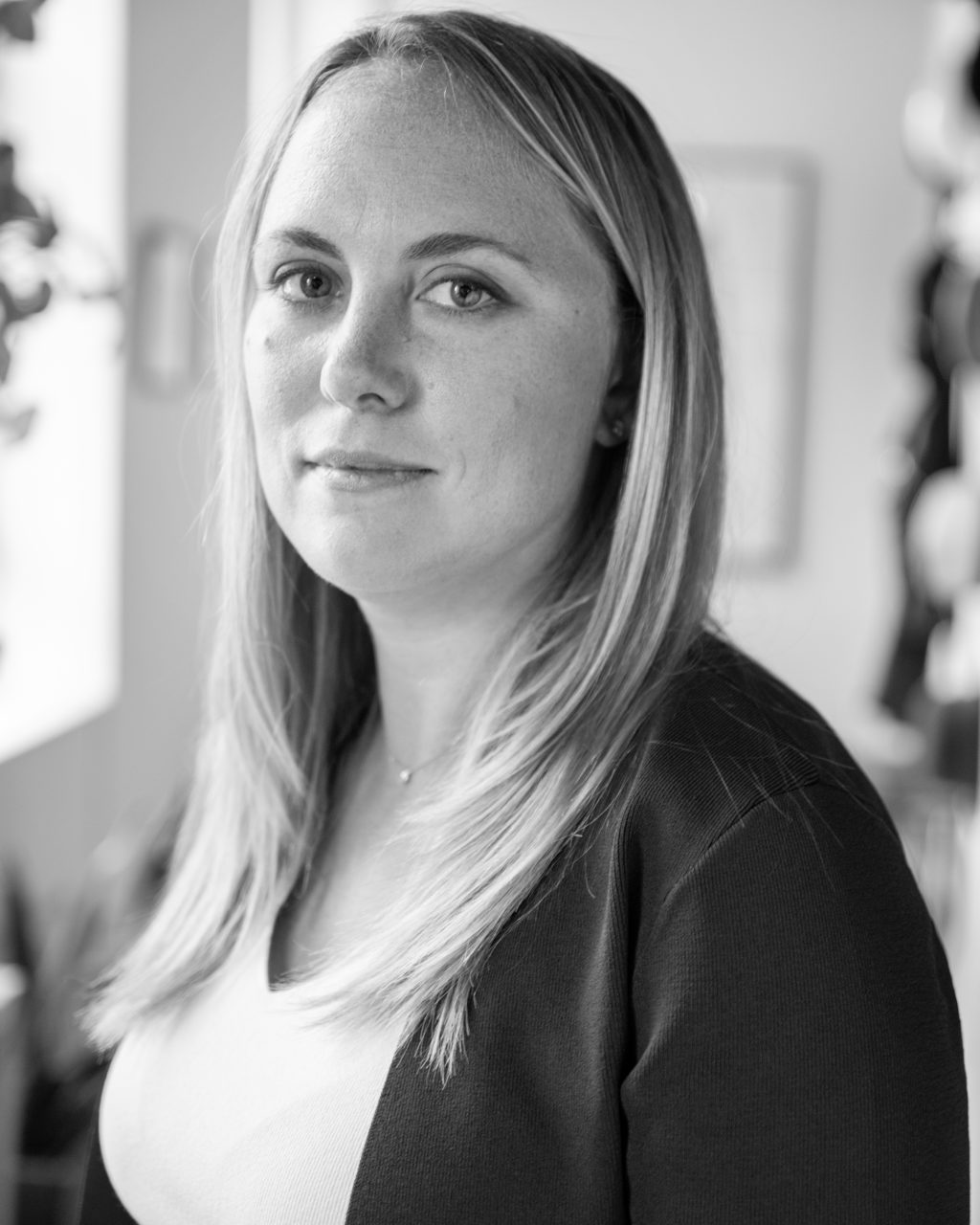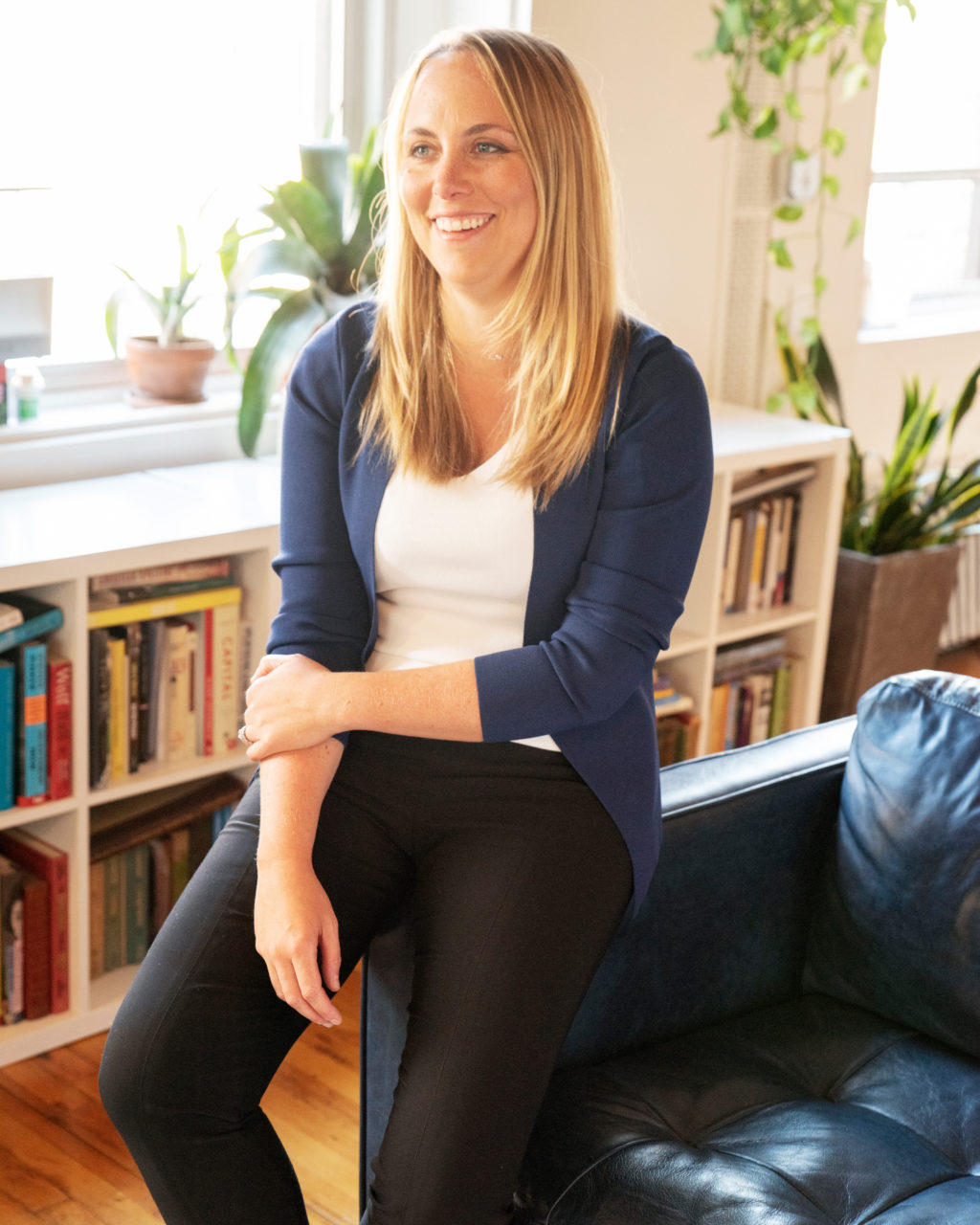How I’m Using Work Skills to Manage My IVF
November 01, 2019 | Filed in: Your Career
Rachel Flynn is M.M.’s Director of Product Management. She’s also a woman navigating the physical and emotional rollercoaster that is trying to get pregnant via IVF. Here, she shares how she’s using some finely tuned work skills to help her stay positive through the process.
“Don’t worry, there’s a lot we can do with IVF these days,” was not what I expected to hear from the radiologist when my pelvic x-ray was over. My voice caught in my throat as I tried not to cry while thanking her. I was meant to start with the basics of fertility help, and in a few minutes, one of the most intensive (and expensive) fertility treatments became my only option to start a family.
While we both wanted children, my husband and I were never really in a hurry to become parents—there were things we wanted to do first. At 38 and 34, respectively, my husband and I wanted to be married and settled in a home outside of the city. I planned to go to business school and train for a marathon. We wanted to build a certain amount of savings and be comfortable in our careers.
Want more M.M.? Sign up for our newsletter.
About a year and a half ago, we decided we were ready to give building a family a real try. A number of my friends had seen specialists to help with their pregnancies, so I took their advice (and the advice of my OB/GYN) on how to track my cycles. I stopped taking birth control, used CVS 40% off coupons to buy ovulation predictor kits (they’re not cheap!), and started a daily tracking spreadsheet. When I noticed that my cycles were too long and my peak fertility windows lasted too many days, it became clear to me that I should seek the help of a reproductive endocrinologist (RE) to figure out what was going on.
My husband and I met with our RE and he was openly optimistic. “You’re young, your hormone levels are good; there are some simple treatments we can start with to give you a little fertility boost.” We would just need to run through some standard diagnostic tests, like genetic screening, semen analysis, and a pelvic x-ray to get a baseline for how everything was working.

Rachel wears the Woolf jardigan, the Peggy top, and the Single Bezel necklace.
But when my diagnostics revealed that not all was working as it should, I was really surprised to know that all my years of physicals and annual gynecological exams never surfaced such a key issue with my reproductive health. My doctor was still encouraging, noting that IVF was a valid option for our family building; I, however, was much less enthusiastic. There were just so many questions to answer:
- Did I—did we—definitely want children? Badly enough to knowingly put my body, our marriage, and our bank account through such a strain?
- How am I going to give myself multiple injections a day when I get lightheaded just thinking about needles? As a little kid, I grilled my pediatrician about which ages I would receive shots, and I’d dread those birthdays for months.
- Can we afford it? If IVF doesn’t work the first time, which it often doesn’t, are we able to try more than once?
- Do we tell our parents? Our friends and colleagues? How much should we share?
- What if IVF doesn’t work? Should we start looking into adoption?
When we made the decision to move forward with IVF, I got over my residual needle phobias very quickly. With weeks of 2-3 injections a night, I became a pro at distracting myself with TV and not flinching as I gave myself each shot. Early on, I was pretty sure that all of the hormones would turn me back into an angsty teenager, but for the most part, I felt better than I expected. Even now that we are several months into the process, I find I’m always trying to figure out whether any strong feelings I have are the result of the hormones or if the weight of my reactions are valid.
“Tracking everything closely gives me a small sense of control—the feeling that there’s something I can tightly manage in a process that’s mostly out of my hands.”
Now my weeks are dotted with frequent 6am doctor’s appointments, making it hard to find balance between a social life and the urge to be in bed by 8pm. The early appointments allow me to make it to work on time, though I occasionally pop out of meetings for calls from my doctor or request days off for procedures scheduled with little notice. But the near constant feeling of “hurry up and wait” is the biggest disruptor for me. I mark time until the next milestone (trigger shots, egg retrieval, embryo transfer), which is usually followed by anxiety-tinged days anticipating results.

Rachel wears the Woolf jardigan, the Peggy top, and the Foster pant.
Since starting IVF, I’ve found it comforting to learn more about the process and the experiences of others, and to know I’m not alone in working through fertility challenges. I keep coming back to this list of what’s kept me grounded over these last several months of uncertainty as a way to self-check when the stress creeps in.
Keeping Perspective
I often remind myself that my experience is just that: my experience. So many people deal with hurdles in trying to conceive, and every person, couple, or family who deals with infertility has their own story—their own ups and downs. Maternal age and health, egg and sperm quality, blocked fallopian tubes, recurrent pregnancy loss, donor eggs/sperm/embryos, and financial constraints are only a few of the obstacles and stressors faced in family building. IVF doesn’t always work the first time, and sometimes not at all after years of trying, while for some, IVF works on their first go. I’m still early in the process and cautiously optimistic, though I’m sure my outlook will shift if I find myself still trying after multiple cycles. Right now, I just feel fortunate to be in a position to try.
Educating Myself
Before I started my first round of medications, I wanted to learn as much as possible about what I could expect. I asked my doctor and nurses questions about everything. I wanted to understand the science of why I was taking certain hormones, and what would indicate progress. I searched for as many scientific publications and studies as I could find to gauge the pros and cons of different treatment options, which helped me cut through the BS of opinion sites and fertility center advertisements. I listened to the podcast Matt and Doree’s Eggscellent Adventure, which taught me IVF shorthand and exposed me to a wide variety of possible outcomes experienced by other listeners. The more I learn, the more fascinated I am by the science and the more connected I feel to the process.
“Our friends and family have found (mostly) the right balance between offering advice and cheering us on. My teammates at work have been understanding and encouraging, and even curious to know more.”
Tracking Progress
I’ve happily let my work brain kick in and take over the tracking and planning aspects of IVF. I created spreadsheets to track my daily medications, appointments, and financials. As a Director of Product Management, I live for a solid roadmap, making progress towards milestones, and recording results. It’s also why I like to understand all the potential outcomes—I can hedge for next steps if I have to adapt my plan, and I’m less thrown by hidden dependencies or roadblocks. I tried to record the qualitative side of the process (all the feels) in a bullet journal, but I don’t quite have the same love for journaling as I have for my spreadsheets. Tracking everything closely gives me a small sense of control—the feeling that there’s something I can tightly manage in a process that’s mostly out of my hands.
Putting It Out There
We’ve received so much positivity as we’ve shared our experience with family, friends, and work colleagues. We decided early on that we would be open about IVF. This decision was both to head off the questions we were already getting about having kids and to be as honest as possible about what kind of support we might need from others. Our friends and family have found (mostly) the right balance between offering advice and cheering us on. My teammates at work have been understanding and encouraging, and even curious to know more. Even my male supervisor and colleagues have been kind and supportive, many of them recent parents themselves. I’ve felt fortunate to find myself in a workplace like M.M.’s, where I can share my experience; it’s helped me to feel comfortable giving myself space when I need it, knowing that I’m not hiding anything from my team and the people who depend on me.
Avoiding Regret
I can’t help but think sometimes that we might not have needed IVF if I had prioritized having kids when I was younger. When my brain goes down that unhelpful path, I actively remind myself of all the reasons I waited. Building my career was—and still is—so important to me. Business school was a blast. Starting a family with someone I trust was paramount for me. And damn, did it feel good to finish a marathon. Having no regrets about waiting to start a family keeps some of my guilt at bay.
My IVF Body
There is no doubt my regimen of hormones and limited aerobic exercise has, well, softened my figure and left me more physically uncomfortable than not. On one hand, I miss using my 6am wakeup calls for a run instead of doctor visits, and I really miss fitting into some of my favorite pants. On the other hand, I feel a weird sense of pride that my puffiness, aches, and faint bruising across my abdomen (from the shots) are all a small sacrifice I’m making for my future family. I’ve started sizing up in my clothes and wearing more flowy and stretchy styles (I lived for my Ronda tops and Noho skirts this summer), avoiding my form-fitting pieces for now—I’ll be back for those later.
Humor
Though IVF is a serious medical undertaking, finding some humor in this process has helped me fight through stress and minimize awkwardness. I sometimes refer to IVF as my “science project,” having learned so much about reproduction and hormones over the last year and a half. I boast when the doctor tells me “your uterine lining is magnificent,” and my husband will tell you it’s his job to rid my injections of their air bubbles. We joke about the “crime scene” I left behind at the doctor’s office during a bloodwork appointment gone awry. It may not be right for everyone, but making light of what we can has created some emotional distance for us between the daily IVF grind and the hopeful outcome.
I’m doing my best not to over-analyze every twinge and Google every cramp, but the Real Housewives only provide so much distraction.
Late this summer, my first embryo transfer ended in a “chemical pregnancy.” This occurs when you have enough of the pregnancy hormone to register a positive test result, but not enough for the pregnancy to last more than a few days. It’s incredibly common across all pregnancies, but you often don’t even realize it happened because it ends so quickly. Even though we knew this was a possibility, the news was a definite gut-punch. But we were relieved to hear the doctor recommended we could try another transfer soon.
As of writing, I’ve completed my second embryo transfer and I’m in the dreaded waiting period for my pregnancy test. If it’s negative, I’m sure I’ll be disappointed again and eager to figure out what’s next (while enjoying a glass of consolation Cabernet). If it’s good news, it’ll be metered excitement since there’s still a long road ahead. I’m doing my best not to over-analyze every twinge and Google every cramp, but the Real Housewives only provide so much distraction. In the meantime, I’m looking forward to the next thing I can log into my spreadsheet.
Photos by Matthew Priestley.
Styling by Nyjerah Cunningham.









